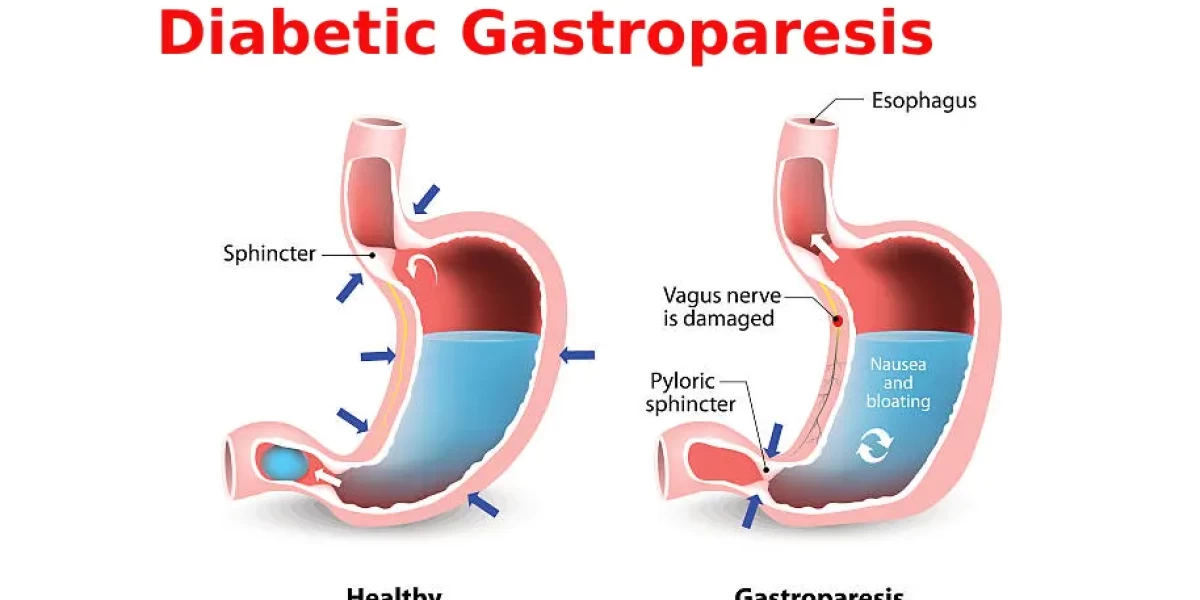Obesity . .
Obesity is a pressing concern in our modern world, affecting millions of people and posing a significant threat to public health. In this comprehensive guide, we will explore the intricacies of obesity, from its definition to its treatment, and prevention, and the relevant statistics. By the end of this article, you will have a profound understanding of this issue, and you'll be equipped to make informed decisions regarding your health or that of your loved ones.
Obesity is a condition that affects millions of people worldwide, and understanding its intricacies is crucial for addressing this global health concern. At its core, obesity can be defined as the excessive accumulation of body fat to the extent that it negatively impacts an individual's health. However, measuring and categorizing obesity isn't as straightforward as it might seem. This is where Body Mass Index (BMI) comes into play, offering a standardized method to assess and classify obesity.
Obesity, in simple terms, is a medical condition characterized by the accumulation of excessive body fat. This surplus fat can have detrimental effects on various aspects of health, from the cardiovascular system to mental well-being. What sets obesity apart from mere weight gain is the critical factor of excess fat storage. In essence, an individual is considered obese when their body fat reaches a point where it compromises their overall health.
However, it's important to note that the definition of obesity isn't solely based on visual appearance or numbers on a scale. To delve deeper into this, we turn to a widely recognized tool - the Body Mass Index (BMI).
The Significance of BMI
BMI is an essential metric used to determine whether an individual falls within a healthy weight range or is categorized as overweight or obese. It's a relatively simple formula that relates an individual's weight to their height. By dividing a person's weight in kilograms by the square of their height in meters, we obtain their BMI. This numeric value is then compared to standardized categories to assess whether an individual's weight is within a healthy range.
These categories include:
- Underweight: BMI less than 18.5
- Normal weight: BMI between 18.5 and 24.9
- Overweight: BMI between 25 and 29.9
- Obese: BMI of 30 or greater
BMI serves as an essential screening tool to quickly and efficiently identify individuals who may be at risk due to their weight. It's widely used by healthcare professionals, and its simplicity allows for easy assessment in clinical settings.
However, it's important to note that while BMI is a valuable tool, it does have limitations. For instance, it doesn't consider factors such as muscle mass, bone density, or distribution of fat in the body. As a result, it may sometimes categorize individuals as overweight or obese when they have a high muscle mass, which is a healthier type of weight.
Furthermore, BMI doesn't provide a complete picture of an individual's overall health. It's essential to complement BMI assessments with other health indicators like blood pressure, cholesterol levels, and waist circumference for a comprehensive evaluation of health.
Understanding obesity involves recognizing that it goes beyond just visual appearance or numbers on a scale. It's fundamentally about the accumulation of excess body fat, which can have severe health implications. The Body Mass Index (BMI) is a valuable tool in this understanding, offering a standardized method to identify and classify individuals who may be at risk due to their weight. However, it's important to remember that while BMI is a useful starting point, it should be considered alongside other health indicators to provide a comprehensive evaluation of an individual's well-being.

Common Symptoms of Obesity
Obesity is a condition that's more than just a number on the scale. It brings with it a range of symptoms that impact physical, mental, and emotional well-being. In this section, we'll delve into some of the common symptoms of obesity, highlighting the physical and psychological toll it can take on individuals.
Excessive Weight Gain
Excessive weight gain is, of course, the most visible and widely recognized symptom of obesity. It's not just about carrying a few extra pounds; it's the accumulation of significant excess body fat. This weight gain is more than a cosmetic concern; it places immense stress on the body's organs and systems, increasing the risk of various health issues.
Individuals with obesity often find that simple tasks, like climbing a flight of stairs or bending over to tie their shoelaces, become challenging. It's not just about feeling heavy; it's the tangible physical impact that excess weight has on mobility and overall comfort.
Breathlessness
Breathlessness is a concerning symptom closely linked to obesity. Carrying excess weight can put added pressure on the respiratory system. As the body tries to meet the increased demand for oxygen, individuals with obesity may find themselves struggling to catch their breath, even during relatively mild physical activities.
Moreover, obesity can lead to sleep apnea, a condition where breathing is repeatedly interrupted during sleep. This not only results in poor-quality sleep but also contributes to daytime fatigue and further exacerbates breathlessness.
Joint Pain
Obesity places a significant burden on the musculoskeletal system. Excess body weight increases the strain on joints, particularly the knees and hips. Over time, this can lead to joint pain and inflammation, making even basic movements painful and uncomfortable.
The pain can become a vicious cycle. It discourages physical activity, and the lack of exercise can further exacerbate the obesity problem, creating a challenging situation for those affected. Joint pain can also lead to conditions like osteoarthritis, which can be debilitating.
Fatigue
Fatigue is a symptom that often accompanies obesity and can have far-reaching effects on a person's daily life. The reasons for obesity-related fatigue are multi-fold. Carrying extra weight requires more energy for basic activities, which can leave individuals feeling exhausted. Additionally, sleep disturbances, as seen in sleep apnea, contribute to a lack of restorative sleep, leading to persistent tiredness.
Fatigue can impact productivity, mood, and overall quality of life. It's not just a matter of feeling a bit tired but experiencing a profound and persistent weariness that makes even routine tasks seem overwhelming.
Snoring
Obesity and snoring often go hand in hand. As mentioned earlier, sleep apnea is a common condition among individuals with obesity, and snoring is one of its hallmark symptoms. It occurs when the soft tissues at the back of the throat relax and partially block the airway during sleep.
Not only is snoring disruptive to the person sleeping but also to their bed partner. It can lead to sleep disturbances for both, compounding the fatigue issue. If left untreated, it can even contribute to more severe health problems.
Low Self-Esteem
The psychological impact of obesity is equally significant. Low self-esteem is a deeply ingrained symptom of this condition. Society's unrealistic beauty standards and the stigma attached to obesity often lead individuals to perceive themselves in a negative light.
Low self-esteem can affect various aspects of life, from relationships to career aspirations. It can make a cycle where people with weight might go to indulging or close-to-home eating as a survival technique, sustaining the condition.
Obesity isn't just about excess weight; it's about a cascade of symptoms that affect a person's overall well-being. Excessive weight gain, breathlessness, joint pain, fatigue, snoring, and low self-esteem are all interconnected aspects of the condition, both physically and emotionally. Recognizing these symptoms and seeking professional help is a vital step toward managing and improving the quality of life for individuals with obesity.
Root Causes of Obesity
Obesity is a complex health condition influenced by various factors, including genetics and lifestyle choices. Understanding the root causes of obesity is essential to effectively combat this widespread issue. In this section, we will delve into two critical aspects: genetic factors and lifestyle choices.
Genetic Factors
Genetics can play a significant role in determining an individual's susceptibility to obesity. Some individuals might possess a genetic inclination that renders it more difficult to sustain an ideal body mass. While genetics don't solely dictate one's fate in terms of obesity, they can create an underlying susceptibility.
One key genetic factor related to obesity is the inheritance of fat-storage genes. These genes can affect how the body stores and burns fat, making some individuals more prone to weight gain. Additionally, genetic factors can influence metabolic rate, determining how efficiently the body converts food into energy. A slower metabolism can result in more efficient fat storage.
Family history also matters. If obesity runs in your family, your genetic makeup may include variants that make you more likely to gain weight. However, it's essential to remember that genetics only provide a predisposition and are not the sole cause of obesity. Environmental and lifestyle elements also have a vital influence.
Moreover, genetics influence an individual's appetite regulation. Some people may have genetic variations that affect their hunger and satiety signals, making it more difficult to control food intake. This can lead to overeating and, ultimately, weight gain.
In summary, while genetics can contribute to obesity, they are not destiny. Understanding your genetic predisposition can help you make informed lifestyle choices to manage your weight effectively. A balanced diet and regular exercise are crucial for countering genetic factors that may make weight management more challenging.
Lifestyle Choices
Obesity is often the result of lifestyle choices that promote overeating and a sedentary way of life. These choices include dietary habits, physical activity, and stress management. Lifestyle choices are modifiable factors, which means that individuals have the power to change them to reduce the risk of obesity.
Dietary Habits: Unhealthy eating habits are a primary driver of obesity. The consumption of highly processed, calorie-dense foods, often rich in sugars and unhealthy fats, contributes to excessive calorie intake. Overeating, especially when it involves unhealthy food choices, leads to weight gain over time.
The absence of portion control and mindless eating can also contribute to obesity. In today's fast-paced world, people often eat on the go or while distracted, leading to overconsumption without even realizing it.
Physical Activity: Sedentary lifestyles are another significant factor in the obesity epidemic. Modern conveniences have reduced the need for physical activity, such as walking or manual labor, which were once part of daily life. The rise of desk jobs, extensive screen time, and passive leisure activities like video games and binge-watching TV have collectively contributed to a lack of physical activity.
Consistent physical activity is crucial for the expenditure of energy and sustaining a desirable body mass. A lack of physical activity results in an energy imbalance, where more calories are consumed than expended, leading to weight gain.
Stress Management: Stress can lead to unhealthy eating habits. Some individuals turn to comfort foods when under stress, which are often high in calories and low in nutritional value. Chronic stress can disrupt hormonal balance, leading to weight gain, particularly in the abdominal area.
Additionally, poor sleep patterns, which can be associated with stress, may disrupt the body's hunger and satiety cues, further contributing to overeating.
Lifestyle choices are the modifiable factors that significantly contribute to obesity. By adopting healthier dietary habits, increasing physical activity, and managing stress effectively, individuals can take control of their weight and reduce their risk of obesity. It's essential to recognize that obesity is a multifaceted issue influenced by a combination of genetic and environmental factors. Taking a holistic approach to addressing both genetic predisposition and lifestyle choices is the key to managing and preventing obesity.
The Health Consequences of Obesity
Cardiovascular Health
Obesity is a significant risk factor for a range of cardiovascular diseases. The excess fat accumulated in the body can lead to a variety of problems for the heart and blood vessels, making cardiovascular health one of the most pressing concerns for those who are obese.
One of the primary concerns related to cardiovascular health and obesity is the development of atherosclerosis. This condition occurs when fat deposits, cholesterol, and other substances build up on the walls of the arteries, forming plaque. As plaque builds up, it constricts the arteries, increasing the difficulty of blood passage. When these arteries become too narrow or completely blocked, it can lead to heart attacks and strokes.
Additionally, obesity often results in the body having to work harder to pump blood, as the heart needs to circulate blood to a larger mass. This increased workload can lead to conditions such as high blood pressure, which is a major risk factor for heart disease. The strain on the heart can also cause it to enlarge, a condition known as left ventricular hypertrophy, which further raises the risk of heart failure.
Furthermore, obesity can disrupt the balance of fats in the blood, leading to high levels of triglycerides and low levels of high-density lipoprotein (HDL) cholesterol. This imbalance increases the risk of atherosclerosis and heart disease.
Diabetes
Obesity is intrinsically linked to the development of type 2 diabetes, a metabolic disorder characterized by high blood sugar levels. When an individual is obese, their cells become resistant to insulin, a hormone that regulates blood sugar. The pancreas attempts to compensate by producing more insulin, but over time, it can't keep up with the excessive demand, leading to elevated blood sugar levels.
High blood sugar can cause a range of health problems, including damage to blood vessels and nerves. The result of this is an elevated susceptibility to cardiovascular disease and cerebrovascular incidents. Over time, uncontrolled diabetes can lead to complications like kidney disease, eye problems, and neuropathy.
Moreover, obesity-related diabetes can have a significant impact on a person's quality of life. Constant fluctuations in blood sugar levels can lead to feelings of fatigue, irritability, and even depression. Individuals with diabetes must closely monitor their diet and may require medication or insulin therapy to manage their condition.
Another concerning aspect of obesity-related diabetes is the risk of diabetic ketoacidosis (DKA). When the body can't use sugar for energy because of a lack of insulin, it starts to break down fat for fuel. This process releases ketones into the bloodstream, which can lead to a dangerous and life-threatening condition known as DKA.
Obesity has profound implications for cardiovascular health and significantly raises the risk of developing type 2 diabetes. The excess weight places a strain on the heart, increasing the chances of atherosclerosis, high blood pressure, and heart disease. Simultaneously, it leads to insulin resistance, contributing to diabetes and a range of complications. Understanding these health consequences underscores the critical importance of preventing and managing obesity, not only for weight control but also for overall well-being.
Treating Obesity
Obesity is a significant health issue affecting millions worldwide, and the key to tackling it lies in effective treatment strategies. In this section, we'll delve into two primary methods of addressing obesity: diet and exercise, as well as medications and surgical interventions. Each approach plays a critical role in helping individuals overcome the challenges associated with obesity.
Diet and Exercise
Diet and exercise are foundational components of any effective weight management plan. These two factors are interdependent, and a holistic approach is essential for long-term success.
When it comes to diet, it's all about quality and quantity. A balanced diet rich in fruits, vegetables, lean proteins, and whole grains is the cornerstone of a healthy lifestyle. Reducing the consumption of processed foods, sugary beverages, and high-calorie, low-nutrient items is crucial. This change in eating habits not only aids weight loss but also promotes overall well-being.
Exercise is the perfect partner to a healthy diet. Regular physical activity has several benefits. It helps individuals burn calories, build muscle, and boost their metabolism. Furthermore, exercise has positive effects on mental health, reducing stress and increasing endorphin production. As little as 150 minutes of moderate-intensity exercise per week can significantly contribute to weight loss and maintenance.
Integrating physical activity into daily schedules doesn't need to be intricate. Simple changes like walking, cycling, swimming, or participating in fitness classes can make a big difference. Finding an activity you enjoy is key to sticking with it over the long term.
In cases of obesity, a well-structured diet and exercise plan should be pursued under the guidance of a healthcare professional or a registered dietitian. They can tailor a program to an individual's unique needs, monitor progress, and provide essential support and motivation.
Medications
In some instances, lifestyle changes alone may not be sufficient to combat obesity. This is where medications come into play. Weight-loss medications are typically recommended for individuals with a BMI of 30 or higher, especially when they have associated health problems like diabetes or high blood pressure.
There are various medications available, each with its own mechanism of action. Some work by reducing appetite, while others interfere with the absorption of fat in the digestive system. These medications can help individuals lose weight by making it easier to adhere to a reduced-calorie diet.
However, it's crucial to understand that weight-loss medications are not a magic solution. They should be used in combination with a balanced diet and regular exercise. Moreover, these medications often have side effects, and their usage should be closely monitored by a healthcare provider.
The decision to use weight-loss medications should be made after a careful evaluation of the potential benefits and risks, and it is typically recommended for individuals who haven't achieved significant weight loss through lifestyle changes alone.
Surgical Interventions
For severe obesity, when other approaches have not yielded the desired results, surgical interventions become an option. These interventions are also known as bariatric surgery and are considered when a person's BMI is 40 or higher, or 35 with obesity-related health conditions.
There are various surgical procedures available, each with its unique approach to weight loss. Gastric bypass and gastric sleeve surgeries are some of the most common options. These surgeries work by reducing the size of the stomach or altering the digestive tract, limiting the amount of food an individual can consume.
Surgical interventions are not without risks, and they are typically considered a last resort after other treatments have failed. However, they have proven to be highly effective in producing significant weight loss and improving or even resolving obesity-related health issues.
The decision to undergo bariatric surgery should be made in consultation with a healthcare professional who can assess the individual's eligibility and discuss the potential benefits and risks.
Treating obesity is a multifaceted process, and it's important to choose the approach that best suits an individual's needs and health status. Whether it's through diet and exercise, medications, or surgical interventions, the key is to take action and seek professional guidance to achieve and maintain a healthier weight. Obesity is a serious health concern, but with the right treatment strategy, it can be effectively managed, improving both physical and mental well-being.
Preventing Obesity
Preventing Obesity is a crucial aspect of maintaining one's health and well-being. In this section of our comprehensive guide on obesity, we'll delve into the various strategies that individuals can adopt to prevent this condition. There are three key components to preventing obesity: healthy eating habits, regular physical activity, and mindful living. By understanding and implementing these components in your daily life, you can significantly reduce your risk of obesity and its associated health problems.
Healthy Eating Habits
Healthy eating habits form the foundation of obesity prevention. What we consume plays a pivotal role in our weight management and overall health. To maintain a healthy weight and reduce the risk of obesity, individuals should focus on adopting a balanced and nutritious diet.
A well-rounded diet should include an abundance of fruits and vegetables, which provide essential vitamins, minerals, and fiber while being low in calories. Whole grains, lean proteins, and healthy fats should also feature prominently in one's daily meals. Conversely, reducing the consumption of processed foods, sugary beverages, and high-fat, high-sugar snacks is essential. These items are often packed with empty calories, leading to weight gain when consumed in excess.
Portion control is another key element of healthy eating habits. It's important to be mindful of serving sizes and avoid overeating. Eating slowly and savoring each bite can help prevent the habit of mindless eating, which often leads to weight gain.
In addition to what you eat, how you eat is also vital. Avoiding emotional eating, where food is used to cope with stress or negative emotions, can be a critical factor in preventing obesity. Developing a healthy relationship with food and understanding the difference between physical hunger and emotional hunger is essential.
Regular Physical Activity
Regular physical activity is the second pillar of obesity prevention. Exercise not only helps burn calories but also has numerous other health benefits. Engaging in physical activity can boost your metabolism, increase muscle mass, and improve your overall fitness.
Strive for a minimum of 150 minutes of moderate-intensity cardiovascular exercise or 75 minutes of vigorous-intensity cardiovascular exercise each week, as advised by healthcare experts. This can be achieved through activities such as brisk walking, jogging, swimming, or cycling. Incorporating strength training exercises at least twice a week is also beneficial as it helps build lean muscle and contributes to a higher metabolism.
Discovering exercises you take pleasure in is essential for sustaining a consistent workout regimen. Whether it's dancing, playing a sport, or hiking, the more you enjoy the activity, the more likely you are to stick with it. Make exercise a part of your daily routine, and over time, it will become a habit that contributes to obesity prevention.
Mindful Living
Mindful living involves developing an awareness of your thoughts, feelings, and behaviors, particularly in relation to eating. This practice can help prevent overeating and emotional eating, which are common contributors to obesity.
Mindfulness techniques can include keeping a food journal to track what and when you eat, as well as your emotional state during meals. This can aid in recognizing trends and cues that lead to excessive eating. Another effective strategy is eating without distractions, such as watching television or working on a computer, which can lead to mindless overconsumption.
Additionally, practicing stress reduction techniques like meditation, deep breathing, or yoga can be incredibly beneficial. High stress levels often lead to emotional eating, so finding healthy ways to manage stress is an essential aspect of mindful living.
Preventing obesity requires a multifaceted approach that involves adopting healthy eating habits, engaging in regular physical activity, and practicing mindful living. By making conscious choices about what, when, and how we eat, as well as incorporating exercise into our daily lives and managing stress effectively, we can significantly reduce the risk of obesity and its associated health complications. These lifestyle changes not only support a healthy weight but also contribute to overall well-being and quality of life.

Obesity Statistics
Obesity is a significant global health concern, and understanding the statistics related to this issue is essential to grasp the scale of the problem. In this section, we delve into obesity statistics, shedding light on its prevalence, trends, and the implications for public health.
Obesity is not confined to one region or population group; it is a global challenge. According to data from the World Health Organization (WHO), in 2016, more than 1.9 billion adults worldwide were classified as overweight. Of this staggering number, over 650 million individuals were classified as obese.
These statistics reveal that obesity is not merely a health issue but a worldwide epidemic. It affects both developed and developing countries, transcending geographical and economic boundaries. While many countries have made efforts to combat obesity through public health initiatives, the problem persists.
The prevalence of obesity varies significantly from region to region. The highest rates are often found in countries with easy access to high-calorie, low-nutrient foods and sedentary lifestyles. For instance, the United States has one of the highest obesity rates globally, with more than one-third of its adult population classified as obese. On the other hand, in some African and Asian countries, obesity rates are lower, but they are on the rise due to changing dietary habits and lifestyles.
Obesity is not limited to adults; it affects children as well. Childhood obesity is a growing concern, as it can have long-lasting health implications. According to WHO, in 2019, an estimated 38 million children under the age of five were overweight or obese. The early onset of obesity can increase the risk of developing chronic health conditions, such as diabetes and cardiovascular diseases, in adulthood.
The statistics concerning obesity carry grave public health implications. Obesity is a significant risk factor for various health conditions, including heart disease, diabetes, certain cancers, and even mental health issues. The economic burden of treating these health conditions is substantial. It not only affects individuals and families but also healthcare systems and economies. According to a report by the McKinsey Global Institute, the economic cost of obesity is estimated to be around $2 trillion annually, accounting for nearly 3% of the global GDP.
Moreover, obesity-related statistics show disparities among different demographic groups. Socioeconomic factors, such as income and education, play a role in the prevalence of obesity. People with lower incomes and less education often have limited access to healthy foods and opportunities for physical activity, making them more vulnerable to obesity.
Additionally, the impact of obesity on mental health should not be underestimated. The stigma and discrimination that obese individuals face can lead to low self-esteem, depression, and anxiety. This highlights the need for a comprehensive approach to addressing obesity, one that encompasses not only physical health but also mental and emotional well-being.
The statistics related to obesity paint a concerning picture of a global health crisis. It is a complex issue that requires a multifaceted approach, including public health policies, education, and societal changes. Understanding the prevalence and implications of obesity is the first step in combating this epidemic and improving the overall health and well-being of individuals and societies worldwide.
Conclusion
Obesity is a complex and multifaceted issue that affects the well-being of individuals and societies worldwide. Understanding its causes, consequences, and treatment options is crucial for tackling this growing problem. By adopting a healthy lifestyle and seeking professional guidance, it is possible to prevent and manage obesity effectively.
Frequently Asked Questions
What is the most common cause of obesity?
The most common causes of obesity are overconsumption of high-calorie foods and a lack of physical activity. Genetic factors also play a role.
Can obesity be reversed through diet and exercise?
Yes, obesity can often be reversed through a combination of a balanced diet and regular exercise. However, individual results may vary.
Are there different classifications of obesity based on BMI?
Yes, BMI is used to classify obesity into categories such as overweight and various degrees of obesity.
How does obesity affect mental health?
Obesity can lead to low self-esteem, depression, and other mental health issues due to societal stigma and physical health challenges.
What is the global prevalence of obesity?
As of 2016, over 1.9 billion adults were overweight, and over 650 million were obese, according to the World Health Organization. These numbers continue to rise.
Important Notice:
The information provided on “health life ai” is intended for informational purposes only. While we have made efforts to ensure the accuracy and authenticity of the information presented, we cannot guarantee its absolute correctness or completeness. Before applying any of the strategies or tips, please consult a professional medical adviser.













